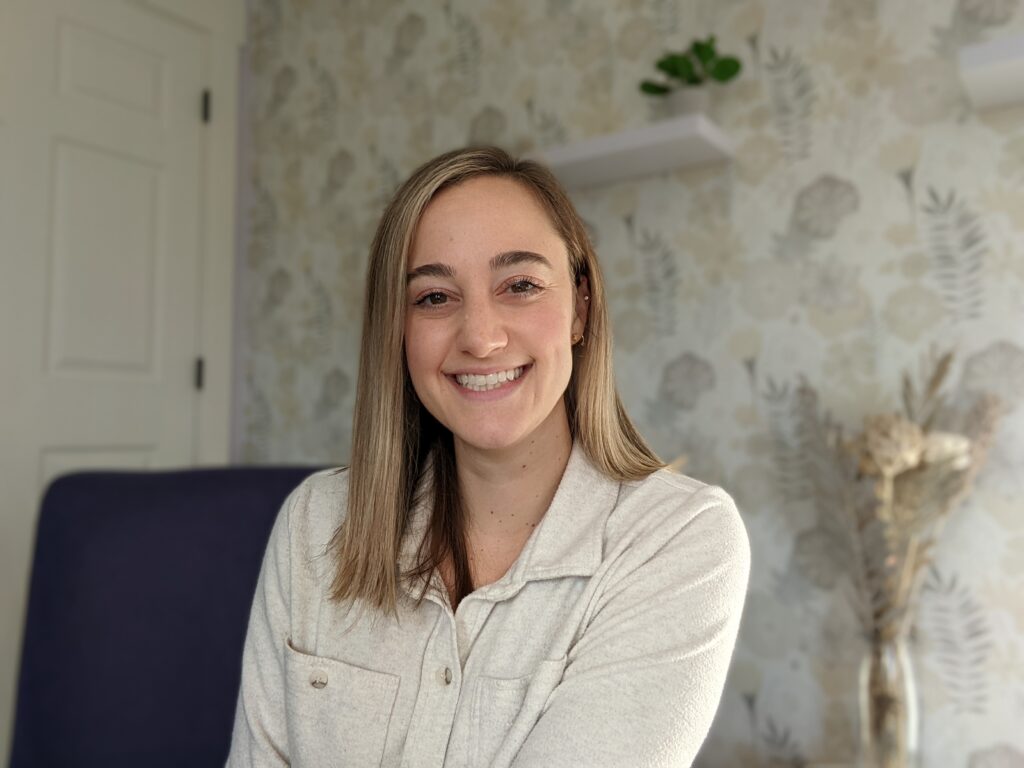As someone who has a chronic illness, and is a chronic illness therapist, I have heard my fair share and my client’s fair share of well intentioned advice and comments that are actually rather hurtful. Families, partners, and friends of those with chronic illness and pain want to support and sometimes feel ill equipped. This post will give some insight and suggestions for how to support someone with chronic illness, what not to say to someone with chronic pain or illness, as well as what to say to someone with chronic pain or illness
Clearing up Some Myths of Chronic Pain and Illness
Many assume that you will know when someone is in chronic pain or has a chronic illness. The reality is that you can’t assess it by just looking at or interacting with someone. Folks with chronic pain have learned how to manage it, disconnect from it, and do their best to engage in life, work, etc.
Most chronic illnesses are also not obvious. The kicker is that the shift in symptoms and impact on life functioning changes from day to day. Additionally, flares happen for a wide variety of reasons. It is common for someone one day being able to work a full day, to the next only being able to work a half day or less. Bodies shift and change, and so do symptoms and pain.
To give some perspective, about 20% of adults in America have chronic pain and about half of Americans have a chronic health condition. With that said, due to the misunderstandings around chronic pain and chronic illness, this leads to a lot of well intended comments that are actually unhelpful.

What Not to Say to Someone with Chronic Pain or Chronic Illness
Some general “rules of thumb” when it comes to what not to say to someone with chronic pain or illness.
- Try not to minimize their pain or symptoms. This might sound like “It can’t be that bad if you’re doing_____” “Does it really happen all of the time?”
- Try not to relate it back to your experience of pain or illness unless you have lived experience with chronic illness or pain.
- Avoid starting a statement with ” At least…” or putting a silver lining on their experience
While the intention behind these phrases is to create some sort of connection, it actually creates disconnection. Comparing chronic pain or symptoms to non chronic conditions or experiences is like comparing apples to oranges. Further, leaving the person feeling minimized or upset. Some of these phrases can communicate a level of discomfort with their experience or condition.

Common Unhelpful Phrases And Why They are Unhelpful
“Yesterday you were able to….”
Comparing what they are able to do yesterday to today minimize and dismisses their experience. Symptoms and pain fluctuates. This means ability to show up consistently in their work or life is going to fluctuate and change day to day. When they do express a boundary or need and are met with a sense of not being believed, this adds emotional labor to their already full load.

“You don’t look in pain/ that sick/
disabled”
As stated above, most chronic health conditions are not visible or detectable by just looking at someone. Folks with chronic pain and chronic illness become very good at masking their pain and discomfort. Disconnecting from the body or pain is another skill that is common in this group. It helps people cope and continue on during their day as best they can. Being in constant pain and present with it, is too much for a body and nervous system to take.
Someone in pain does not need to be in audible pain or grimacing or look sickly. A person’s external body language does not always show their internal experience.
A challenge in the community of folks with chronic pain or chronic illness is feeling qualified enough to get additional aids, walking assistance, or accommadations in school or work.

“Maybe if you tried or do ______”
“Have you tried this______(fill in the blank with some diet, health care/wellness practice)”
“My aunt did this when she was diagnosed with X”
“I’ve done some research (googled or watched a documentary) and…”
All these comments are actually unsolicited medical advice and or blame the person for their chronic condition. If someone asks for help or advice related to their condition, specifically, then yes, share your knowledge, resources, or thoughts. Otherwise, this is unwelcome advice, and unwelcome advice is veiled criticism. Most people with chronic pain and illness have done extensive research into many different treatment options and likely have tried many diets, treatments, exercises, etc. You will not be telling them something they have not already learned or tried.

“Everything happens for a reason”
While the intention probably is good, this comment can be cloaked in shame and guilt. It implies that bad things happen to people because they failed in some way or deserve it. There are a lot of folks who do gain new insight and develop new skills and hardiness out of chronic pain and illness, but that does not mean chronic conditions happen for a reason.

“How are treatments going? How are you really?”
Some folks don’t want every conversation to be about their treatments or conditions. As a result, these questions can put folks in a tough spot of what they want to share or not. It is best to ask permission before diving into someone’s medical conditions or wait for them to bring it up.
How to Support Someone with Chronic Illness or Pain
You might be reading this because you do want to support your friend or loved one and have positive intentions. Equally important, you want to stay connected in your relationship. It is so tricky to support someone through chronic illness and pain. Here are some great phrases for what to say to someone with chronic pain or illness. If you try some of these out, be open to feedback from your friend or loved one. Not everyone likes to be communicated with in the same way, and they might have some good suggestions.
Some Alternative Phrases to Try Out
Express Empathy and Understanding
“I believe you.”
“I’m here for you.”
“Ah, that sounds so hard.”
“You’re tired because it’s exhausting.”
A simple “That sucks” can go a long way
Active listen and reflect back their feelings or thoughts they’re sharing

Offer Support
“I wanted to bring you a meal, is there a good time to drop it off?
If it is someone with a lot of dietary restrictions-”I wanted to bring you a meal. Can you send me a link to a recipe that works for you or a link to a restaurant that you can enjoy?”
“I would love to pick up the kids. What day would be best for you?”
“I would love to do______for you. Can I email you about it?
“I am happy to join you at your next appointment and take notes if you’d like”

Allow them to lead the conversation
This can demonstrate a level of respect for their boundaries over their medical conditions and complex emotions tied to it. Not everyone wants to talk about their health all of the time.
If you have a sense they may want to talk about it, ask for permission first and respect if their answer is no.

Check in on what they need from you
Do you want advice or comfort?
“Wow, that sounds really hard, do you want advice or comfort?”
“Do you want to problem solve or for me to just listen?”
“It makes sense you’re so upset about this. How would you like me to support you right now?”
“Do you want a sounding board right now, or do you want my input?”
In Summary
Overall, it is best to slow down and think through what to say to someone with chronic pain or illness. Focus on empathy statements and respecting their boundaries. Seek out feedback from your loved one to see if there are other phrases that would be good to hear. While I listed a number of possible phrases to support, not everyone is going to recieve them the same. If you’re not sure what to do or how to respond, ask. Often just sitting with them can be supportive and helpful. Lastly, you can seek out more education about their particular conditions, not to offer medical advice, but to better understand what they are going through.

If you are a spouse, friend, partner, family of a loved one with chronic pain or illness there are support resources for you too. Specific diagnoses have supports for caregivers. You can often find these through searching specific diagnoses or connecting with their treatment team. Here is a resources to check out for support groups and education.
I will be compiling a more detailed list in the future specific to Spouses, partners, and family. Stay tuned for a more comprehensive list of supports and resources for spouses, partners, and family members of someone with chronic illness or pain.
If you are in North Carolina or Oregon and interested in joining a support group specifically for families, friends, and partners of folks with chronic illness contact me. You will be added to my interest list for the next support group. You can also check out My Groups page to learn about any current and upcoming therapy groups.

Lexi Gross is a Licensed Clinical Mental Health Counselor in North Carolilna and a Licensed Professional Counselor in Oregon. She is a Somatic Experiencing Practictioner and specializes in therapy for chronic illness.
© 2022-2026 Lexi Gross Counseling PLLC
